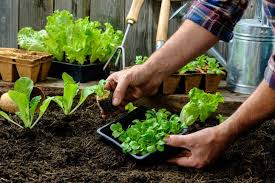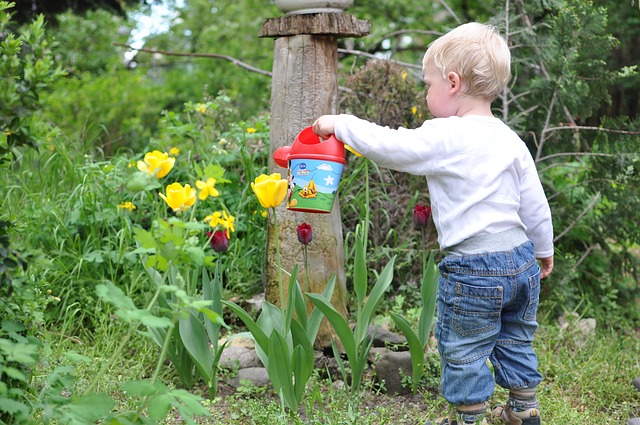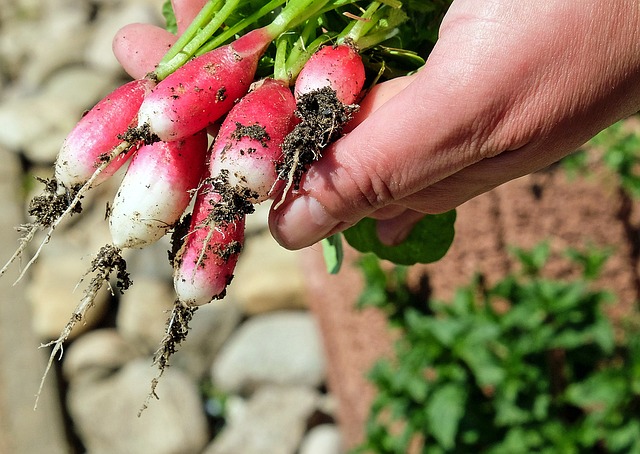If you are wondering how to begin a garden, you’re not alone. Every new gardener needs a few vegetable garden tips. There are so many different kinds of vegetables to plant, growing times for each plant to consider and many other factors that can make or break a successful garden.
Starting a Garden
Follow these ten simple steps to starting a garden with no stress and lots of fun!
1. Start Small
Starting a garden can quickly become overwhelming if you try to do too much. Start with a single bed this year and grow just a few veggies. As you learn how to make a home garden successful you can expand your garden by adding new beds each year.
2. Build Raised Beds
While raised beds take a little work to start, they make starting a garden so much easier! Raised beds need less water and tolerate heavy rains easily. They have fewer weeds and are easier to work in.
3. Plan for your Region
When you are starting a garden you have to decide where to put it. This is very dependent on your region. For instance, if you live in New England and have a short growing season and cool nights, place your garden in full sun on the south side of your home. If you live in a hot southern state like Georgia, put your garden somewhere that gets shade in the afternoons to protect your veggies from heat stress. If you aren’t sure what your growing season has in store, check out this great resource on gardening zones.
4. Get Creative When Starting a Garden
Starting a garden doesn’t have to be expensive if you are a little creative. What is around you? Collect leaves your neighbors are raking up to use as mulch. Ask the town if you can have branches or logs from highway clean up jobs to use as edging or to build a hugelkultur bed.
5. Buy Starts
You’ll have enough to do your first season gardening without trying to grow all your plants from seed. You can find healthy starts at a local farm, CSA or farmers’ market.

Image courtesy of gardeningknowhow.com
6. Use a Natural Weed Barrier
Even before starting a garden most people are already worrying about weeds. Fortunately you don’t need herbicides or plastic matting to stop weeds from coming back. Simply lay a thick sheet of cardboard down and build your bed on top. Not only will the cardboard stop weeds, it attracts beneficial earthworms.
7. Amend the Bed from the Start
Don’t wait to add compost, manure or rich soil to your garden. Starting a garden with plenty of compost will ensure that there are enough nutrients for your first crop.
8. Use Mulch
Mulch is a gardener’s best friend. You’ll find that starting a garden from scratch is a lot of work. You’ve invested time, money and lots of energy into building a great garden, so protect it with mulch. Leaves, grass clippings, hay, straw or wood shavings can all be used as mulch. They protect the soil while slowly adding nutrients in a way that mimics nature.
9. Start Early When Starting a Garden
Starting a garden in spring is actually not the best idea. New garden beds need some time to settle and building great soil takes time. The best time to start garden beds is in the fall. That way you can cover them in a thick layer of mulch and let them sit all winter. In the spring you’ll have a rich bed full of dark, crumbly soil.
10. Enjoy Yourself!
You may be starting a garden to produce food, but it should also be fun. Garden with a friend or get your kids involved to make it a fun activity for the whole family.

Image courtesy of simplemomblog.com
Extended Reading
Learn all about starting a garden with raised beds.

